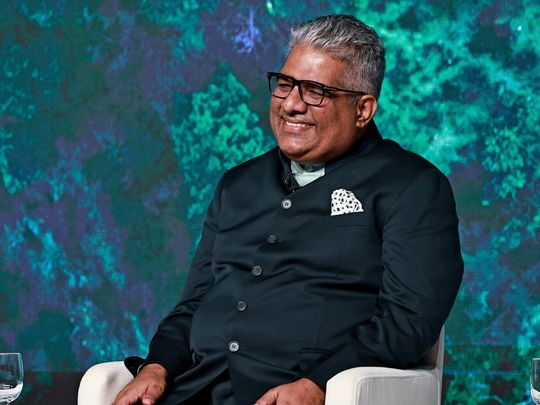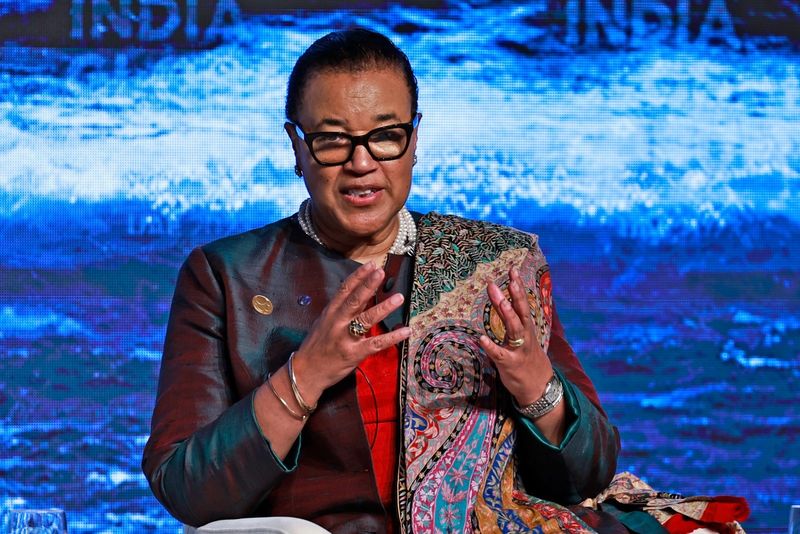
As the world gears up for the COP28 conference in the UAE, Bhupender Yadav, India’s Minister for Environment, Forest, and Climate Change, emphasised the need for discussions on climate change to include conversations on climate justice as well.
“When we talk about climate change, we must talk about climate justice also. It is important to give a dignified life to every human being, and to recognise that every country has a right to development,” he said, underscoring the need for a holistic approach that addresses not only environmental concerns but social, economic, and ethical dimensions as well, paving the way for more inclusive and effective climate solutions. The minister was speaking at the concluding session of the Climate and Business (ClimB) Forum on the final day of the three-day India Global Forum Middle East and Africa 2023 held in Dubai.
Yadav said while India has achieved its Nationally Determined Contributions (NDCs) targets nine years earlier, the country has to honour its commitment to development too. “We are ready to contribute to NDCs but we are also committed to our country, and to the eradication of poverty, and for that definitely more energy is required,” the minister said. “In COP28, the outcome of Global Stocktake is very important,” he said, adding that the conference should adopt the framework of the Global Goal on Adaptation. The minister also called upon COP 28 to increase the funds for global adaptation practices.
Yadav highlighted lessons drawn from India’s Mission LiFE (Lifestyle for Environment) initiative that aims to recalibrate the global climate action narrative by placing individual behaviours at its core. “We hope it will become a movement where every individual contributes to the fight against climate change,” he said. Fostering environmentally friendly habits should be ingrained in our behaviour. Developing a sense of civic responsibility should naturally encompass an environmental consciousness, and it’s crucial to impart to our children the message that civic sense isn’t just about coexisting in society but also about preserving our planet. The minister also highlighted the importance of promoting conscious consumption. Mission LiFE advocates a paradigm shift from the prevailing ‘use-and-dispose’ economy, known for its reckless consumption, towards a circular economy rooted in mindful and purposeful utilisation. The mission’s essence lies in nudging individuals worldwide to adopt simple yet impactful daily actions that collectively contribute to combating climate change.

Speaking at an earlier session of ClimB, Baroness Patricia Scotland, Secretary-General, Commonwealth of Nations, stressed the importance of harnessing human ingenuity and technology, such as geospatial data and AI, to devise sustainable solutions and combat the far-reaching consequences of climate change. “If you look at where we are now, human genius got us into this mess. The effect of the Industrial Revolution wasn’t understood when it happened, but we understand it now. Consequences of that revolution is being felt today and now human genius is going to have to get us out of this,” she said.
The massive innovations happening now could prove to be the game changer in sustainable action, Scotland noted. “We’ve got enzymes now, which can eat plastic, and help clean our oceans. So, there are huge, brilliant innovations taking place. But it will take all our global genius focusing together on this to come up with the solutions that we need. And I think we can do it If we choose. What perplexes, depresses and upsets me, is when I see we're not choosing,” she added.
The ClimB Forum discussed the possibility of economic growth coexisting harmoniously with sustainability, and explored the potential of technology as a catalyst for impactful global change. The sessions deliberated a range of critical themes, from the private sector’s crucial role in achieving net-zero emissions to the fate of fossil fuels in a world transitioning toward a low-carbon trajectory. The forum assumed added significance as it happened on the eve of the crucial COP28 global climate conference, lending an opportunity for leaders and policymakers to set the agenda for proactive discussions that could significantly influence the direction of COP28’s deliberations.











